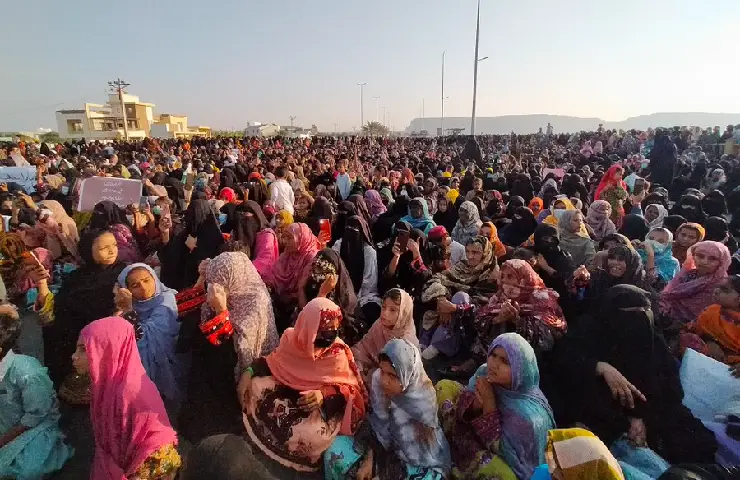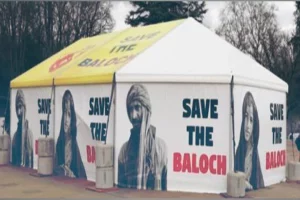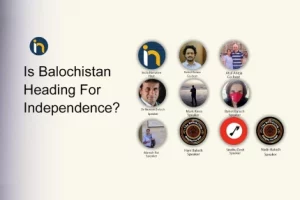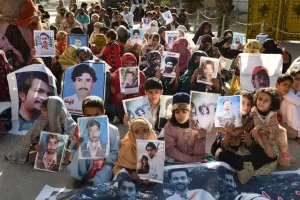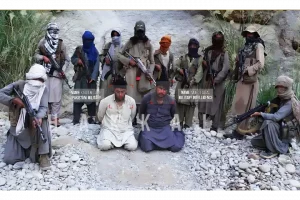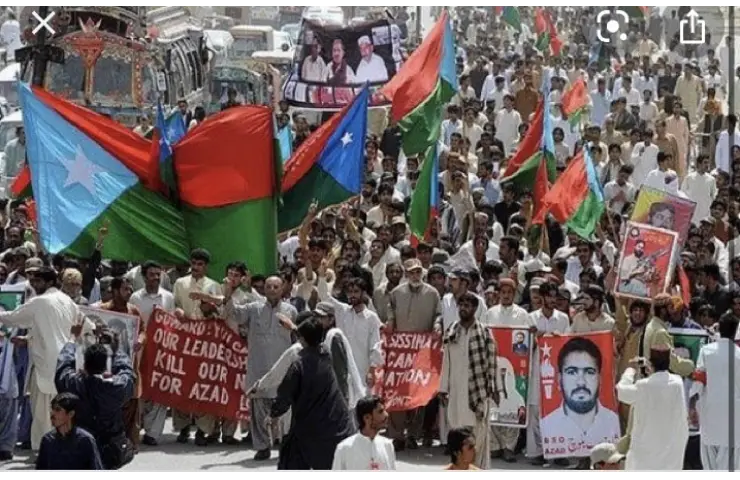The 'Give rights to Gwadar' movement has become bigger with large numbers of Baloch women and children joining the protests for their rights against the Pakistani and Chinese projects in their region.
The 'Gwadar ko haq do' movement has intensified with female students, political workers and working women reaching Gwadar port city from nearby towns like Turbat, Ormara, Jewani, Pasni and other areas of the district.
A huge gathering today in #Gwadar, where thousands of Baloch women, children participated for basic rights of Gwadar and support of ongoing protest by @MHidayatRehman from 2 weeks, where he presented a list of 14 demands for Justice to Gwadar pic.twitter.com/XdVfpBVvJB
— Noora Baloch (@noorabaloch2) November 29, 2021
India Narrative reported last week that the movement for basic rights to the local Baloch people has spread across various towns of Makran coast. Now it has become bigger with the women joining the sit-in in the Gwadar port city.
Thousands of women gathered on Marine Drive–the busiest route in Gwadar city, and marched on the main streets. The women carried placards and banners “Gwadar ko haq do” and shouted slogans against the government.
The fortnight-long protests have been spearheaded by Jamaat-i-Islami’s (JI) leader Maulana Hidayat-ur-Rehman Baloch. Addressing the crowds, he said: “The people of Gwadar have been deceived in the name of CPEC and Gwadar port while they have not benefited from it,” Pakistani newspaper Dawn quoted him as saying.
Women leaders of JI—Fatima Sumera Siddique, Zoya Baloch, Nafisa Rasheed and Zeenat Allah Bakhsh, addressed the protestors at the agitation.
The Baloch have carried out their protests sporadically all through this year seeking restoration of fishing rights, opening the border with Iran for trade and arrangements for regular water and power supply. This summer the province faced a starvation-like situation with food in short supply.
With Maulana Baloch mobilising newer sections of people like the women, the agitation has brought Gwadar port city to a standstill. Moreover, the protests have grown in other parts of Balochistan. The Maulana says that local transport agencies have stopped supplying construction material to the Chinese companies.
گوادر میں آج کوئی گھر ایسا نہیں رہا جہاں سےہماری عفت ماب بہنیں بیٹیاں مائیں اس ریلی میں شرکت کےلیے نہ پہنچی ہوں۔ گوادر کی خواتین نے آج تاریخ رقم کردی ہے، اپنے حق کے لیے اپنے شعور کا اظہار کر دیا ہے۔ صوبہ کیا پورے ملک میں اس کی نظیر ملنا مشکل ہے۔ وقت آ گیا ہے کہ انھیں حق دیا جائے pic.twitter.com/35w1i3KUw9
— Maulana Hidayat ur Rehman Baloch (@MHidayatRehman) November 29, 2021
Maulana Baloch has alleged that the drug mafia and liquor business are plying their activities with the connivance of the local administration due to which the youth were turning to drugs.
He also said that the protesters are not “Indian agents” as is being alleged by the government. After blocking city roads, Maulana Baloch has threatened to block the coastal highway.
As the largest province of Pakistan, Balochistan occupies almost 40 per cent of Pakistan, has large mineral deposits coupled with the poorest human development indicators in Pakistan. Both China and Pakistan run copper, coal and gold mines in Balochistan without any economic benefits or jobs coming to the local population.
The perceived exploitation by the local populace has fuelled the rise of an independence movement and daring attacks against Pakistani troops and Chinese nationals. Baloch nationalists have even targeted Chinese ambassador Nong Rong for their perceived alienation and economic exploitation.
Relations between China and Pakistan have been impacted because of local Pakistani opposition to Chinese projects.
The Baloch people also look at the China Pakistan Economic Corridor (CPEC) with suspicion. The CPEC has taken away local lands as well as access to the sea, leaving out the Baloch from the economic benefits, employment and livelihoods being generated by the CPEC.
Last week, in a bid to quell rising protests by various constituents–students, doctors, fishermen and the general public, against the government, the Balochistan assembly had issued an ordinance banning demonstrations and protests. With women and children joining the protests in Gwadar, that ban lies buried in a load of Baloch protests.






